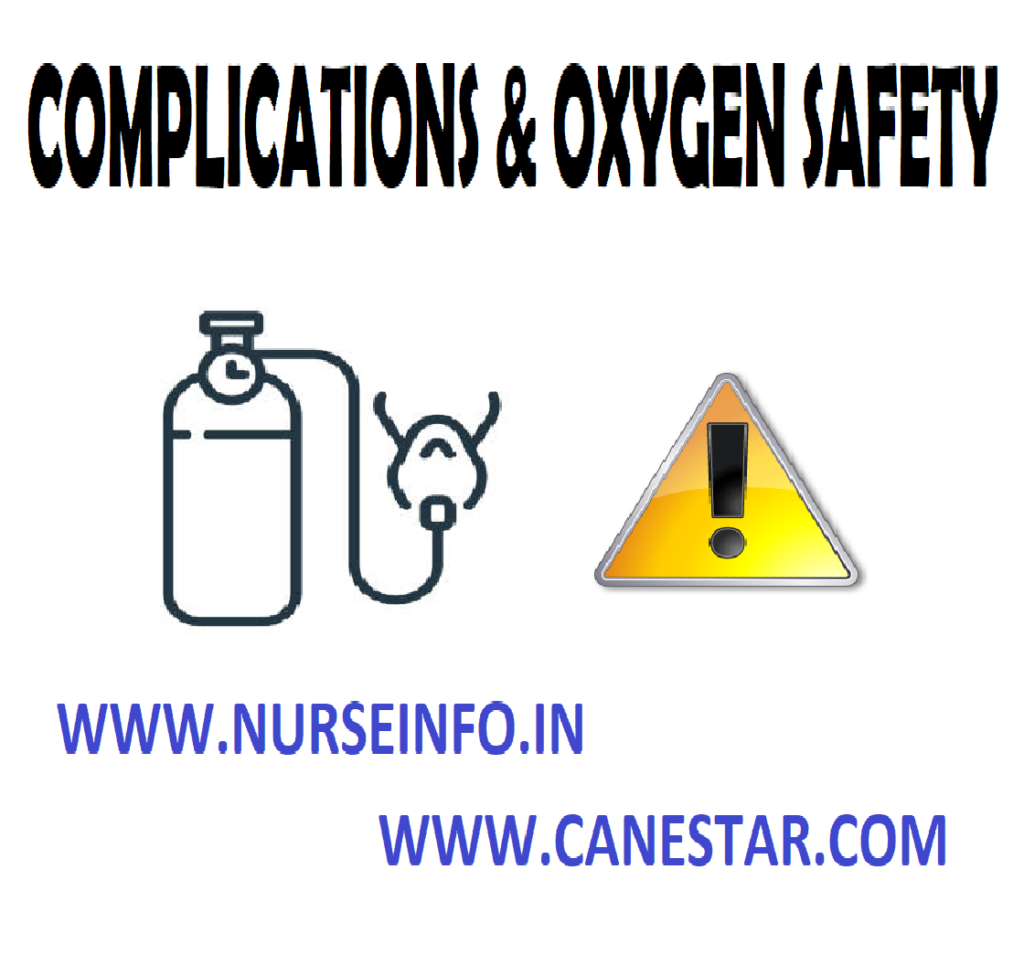COMPLICATIONS OF OXYGEN
CO2 Narcosis: this occurs in patients who have chronic respiratory obstruction or respiratory insufficiency which results in hypercapnia (i.e. raised PaCO2). In these patients the respiratory center relies on hypoxemia to maintain adequate ventilation. If these patients are given oxygen this can reduce their respiratory drive, causing respiratory depression and a further rise in PaCO2
Monitoring of SpO2 or SaO2 informs of oxygenation only. Therefore, beware of the use of high FiO2 in the presence of reduced minute ventilation
Pulmonary Atelectasis
Pulmonary oxygen toxicity: high concentrations of oxygen (>60%) may damage the alveolar membrane when inhaled for more than 48 hours resulting in pathological lung changes
Retinopathy of prematurity (ROP): an alternation of the normal retinal vascular development, mainly affecting premature neonates (<32 weeks gestation or 1250 g birth weight), which can lead to visual impairment and blindness. Substernal pain-due: characterized by difficulty in breathing and pain within the chest, occurring when breathing elevated pressures of oxygen for extended periods
OXYGEN SAFETY
Oxygen is not a flammable gas but it does support combustion (rapid burning). Due to this, the following rules should be followed:
- Do not smoke in the vicinity of oxygen equipment
- Do not use aerosol sprays in the same room as the oxygen equipment
- Turn off oxygen immediately when not in use. Oxygen is heavier than air and will pool in fabric making the material more flammable. Therefore, never leave the nasal prongs or mask under or on bed coverings or cushions whilst the oxygen is being supplied
- Oxygen cylinders should be secured safely to avoid injury
- Do not store oxygen cylinders in hot places
- Keep the oxygen equipment out of reach of children
- Do not use any petroleum products or petroleum byproducts, e.g. petroleum jelly/Vaseline whilst using oxygen.



If it is possible, I want to access this website.
Thanks